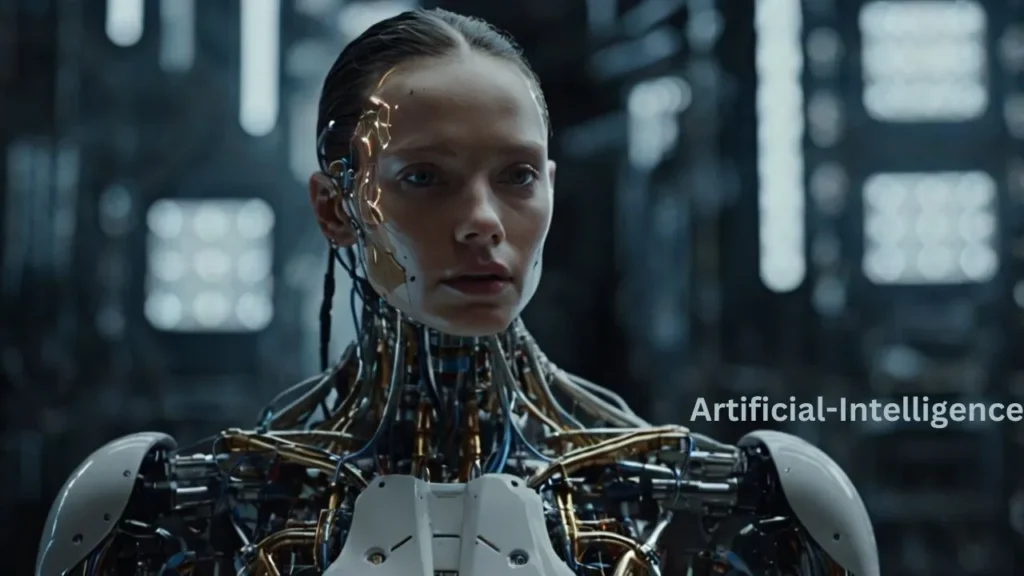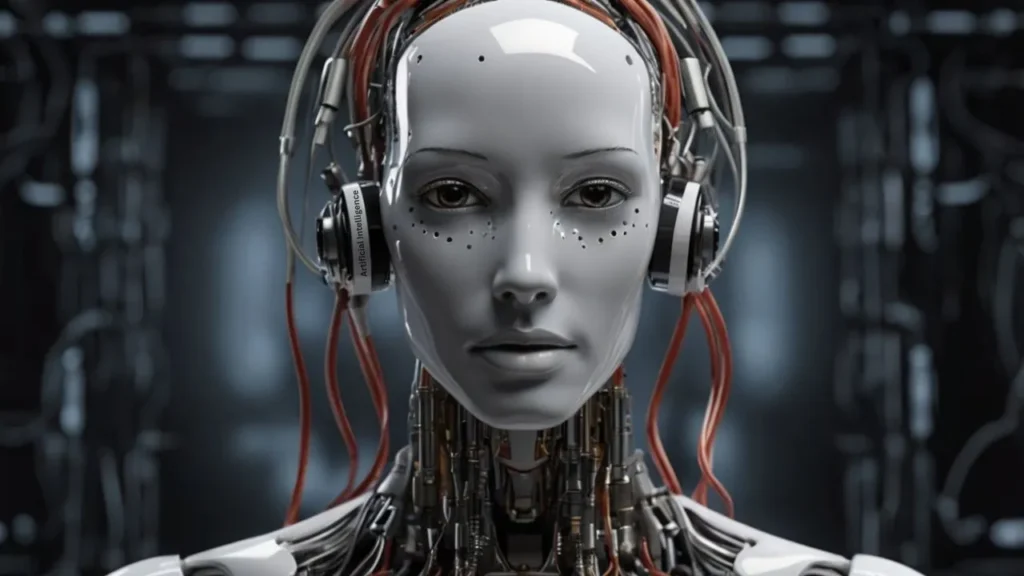Artificial Intelligence (AI) has fast evolved from a futuristic concept into a transformative force that is reshaping industries and changing the way we live. From enhancing business operations to improving everyday tasks, AI is becoming a basic part of modern society. In this article, we’ll explore how AI is transformed in various sectors and what this means for the future.
What is Artificial Intelligence?
At its core, Artificial Intelligence refers to the simulation of human intelligence in machines that are programmed to think, learn, and adapt. These intelligent systems can process large amounts of data, recognize patterns, and make decisions with minimum human intervention. AI ring various technologies, including machine learning, natural language processing, robotics, and computer vision.
The development of AI has been driven by advances in computing power, the availability of big data, and advance in algorithms. As a result, AI systems have become more sophisticated, capable of performing tasks that were once thought to be exclusively human, such as understanding natural language, recognizing images, and even driving cars.
AI in Everyday Life
AI is no longer limited to research labs or sci-fi movies—it’s a part of our daily lives. Whether we realize it or not, we interact with AI every day through various applications and devices.
- Personal Assistants: Artificial Intelligence powered personal assistants like Siri, Alexa, and Google Assistant have become household names. These virtual assistants can answer questions, set reminders, control smart home devices, and even make shopping easier. They use natural language processing to understand and respond to voice commands, making them a basic part of the modern smart home.
- Recommendation Systems: Have you ever noticed how Netflix suggests movies, or how Amazon recommends products based on your previous purchases? These are examples of AI at work. Recommendation systems use machine learning algorithms to analyze your behavior and preferences, offering personalized content that enhances your user experience.
- Social Media Algorithms: Social media platforms like Facebook, Instagram, and Twitter use AI to curate the content you see in your feed. These algorithms analyse your interactions—likes, shares, comments—and use that data to show you posts that are most likely to interest you. While this enhances user engagement, it also raises concerns about echo chambers and the spread of misinformation.
- Autonomous Vehicles: Self-driving cars are one of the most visible examples of Artificial Intelligence future. Companies like Tesla, Waymo, and Uber are developing autonomous vehicles that use AI to navigate roads, avoid obstacles, and even make decisions in complex traffic situations. While fully autonomous vehicles are still in development, AI is already being used in advanced driver-assistance systems (ADAS) to improve road safety.

AI in Industry
AI is also revolutionizing various industries, driving efficiency, innovation, and new business models. Here are some key sectors where AI is making a significant impact:
- Healthcare: Artificial Intelligence is transforming healthcare by improving diagnostics, treatment planning, and patient care. For example, AI algorithms can analyze medical images to detect diseases like cancer more accurately and at an earlier stage than human doctors. AI-powered tools also help personalize treatment plans by analyzing patient data and project outcomes. Additionally, AI is being used in drug discovery, speeding up the development of new medicines.
- Finance: In the economic sector, Artificial Intelligence is being used for everything from fraud detection to customer service. Machine learning algorithms can analyze transaction data in real-time to identify unsure activities, helping prevent fraud before it occurs. AI-driven chatbots are also becoming common in banking, providing customers with instant support and personalized financial advice. Moreover, AI is revolutionizing trading, with algorithms capable of analyzing market trends and executing trades at lightning speed.
- Manufacturing: Artificial Intelligence is driving the fourth industrial revolution, often referred to as Industry 4.0. In manufacturing, AI-powered robots and automation systems are increasing productivity, reducing errors, and improving safety. These intelligent systems can work alongside human workers, taking over repetitive tasks and allowing humans to focus on more complex and creative aspects of production. AI is also being used for predictive maintenance, analyzing data from machines to predict and prevent equipment failures.
- Retail: Artificial Intelligence is transforming the retail industry by enhancing customer experiences and optimizing operations. Retailers are using AI to personalize marketing, manage inventory, and even design products. For example, AI can analyse customer data to predict trends and recommend products that are likely to sell well. In stores, AI-powered systems can track inventory levels in real-time, ensuring that popular products are always in stock. AI is also being used in customer service, with chatbots providing instant assistance and support.
The Future of AI
The future of AI is both exciting and uncertain. As AI continues to evolve, it will clearly bring about more innovations and changes across all aspects of life. However, it also raises important ethical and societal questions.
- Ethical Considerations: As Artificial Intelligence becomes more capable, discus about privacy, bias, and accountability are growing. For instance, AI systems that make decisions about hiring, lending, or law imposition must be carefully designed to avoid reinforcing existing biases or discriminating against certain groups. There is also the question of who is responsible when an AI system makes a mistake, particularly in high-stakes situations like autonomous driving or medical diagnosis.
- Job Displacement: Another significant worry is the impact of AI on employment. AI has the potential to create new jobs and industries, it could also lead to the displacement of workers, particularly in sectors that rely on repetitive tasks. Preparing the workforce for these changes through education and deskilling will be crucial to ensure that the benefits of AI are widely shared.
- AI and Creativity: On a more positive note, AI is opening up new possibilities for creativity and innovation. AI systems are already being used to generate art, music, and literature, tasting our traditional notions of creativity. As AI continues to develop, it may become a valuable collaborator in fields like design, entertainment, and the arts.
Conclusion
Artificial Intelligence is no longer a distant concept—it’s a reality that is transforming our world. From making our daily lives more convenient to revolutionizing entire industries, AI is a powerful tool with expensive developing. However, as we embrace AI, it is essential to address the ethical and societal challenges it presents to ensure that its benefits are realized by all. As we move forward, the key to put to House AI’s power will be a balanced approach that combines innovation with responsibility.







